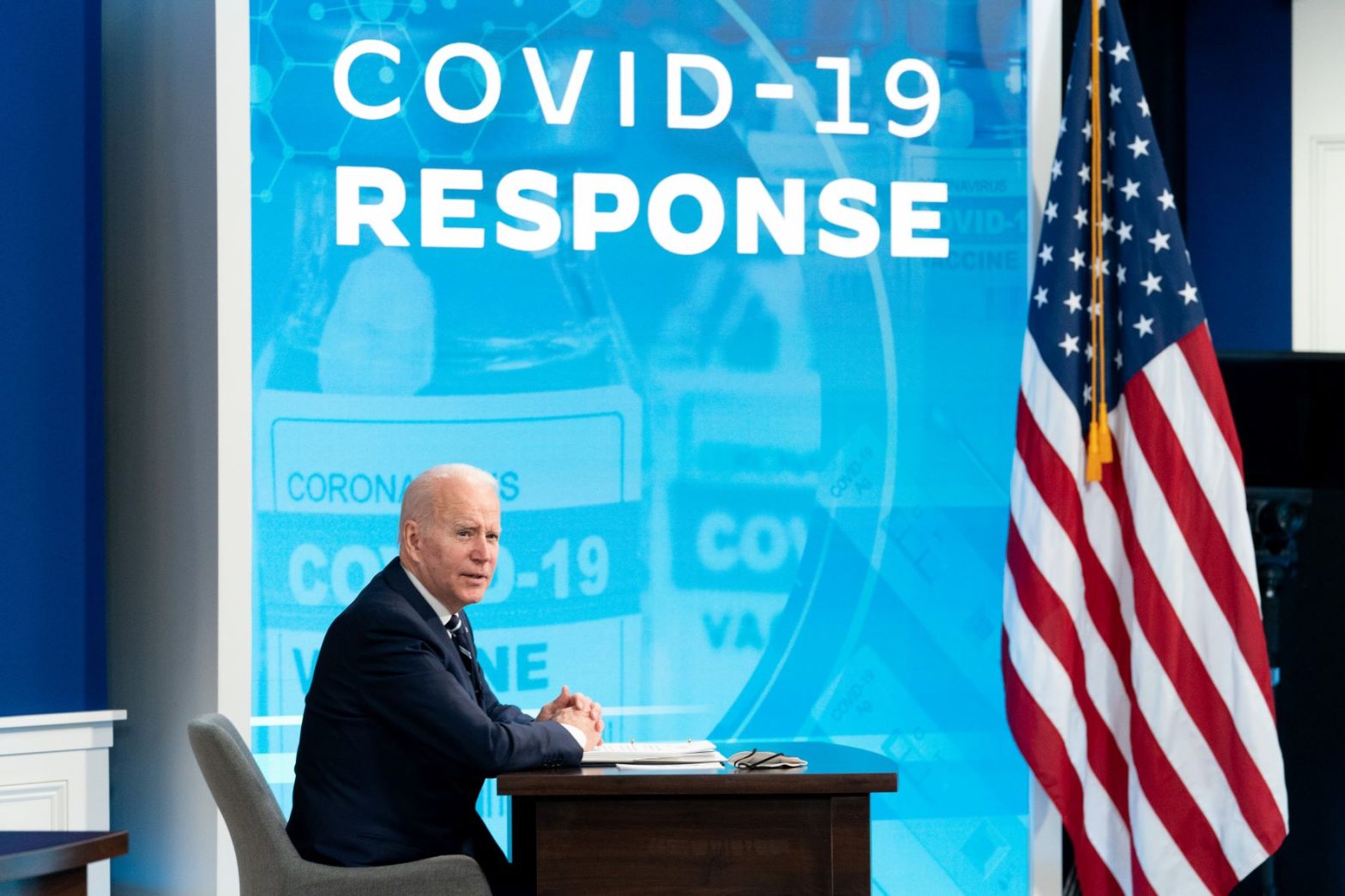White House Outlines Dire Outcomes if Congress Fails to Pass COVID Relief Aid Bill

WASHINGTON — The White House issued a letter to House Speaker Nancy Pelosi on Tuesday outlining what might happen now that the $22.5 billion in COVID-19 relief aid was dropped from the Consolidated Appropriations Act of 2022.
“We continue to urge Congress to promptly provide the critical funds needed to prevent severe disruptions to our COVID response,” writes Shalanda Young, acting director of the Office of Management and Budget, and Jeffrey Zients, White House coordinator for COVID-19 response, in the letter.
“Waiting to provide funding until we’re in a surge will be too late.”
According to the letter, the exclusion of COVID-19 aid from the omnibus spending package could lead to no additional purchases of monoclonal antibodies sent to states, fewer tests made in America, fewer treatments for the immune compromised and a risk of running short on vaccines.
According to the letter, the federal government initially planned an order of more monoclonal antibody treatments for March 25, but without additional funding this order will not be possible.
The government will instead have to stretch the current supply of these treatments starting next week and will be forced to cut state allocations of the limited existing supply of monoclonal antibody treatments by more than 30%.
The letter indicates that without the funds from the omnibus spending bill there will also not be adequate resources to purchase enough booster vaccine doses for all Americans.
Providers will no longer be able to submit claims for testing, treatments and vaccinating the uninsured — as the fund that reimburses doctors and other medical providers for caring for the uninsured will be scaled back this month and end completely in April.
The letter further states that starting March 22, the Uninsured Program will stop accepting new claims for testing and treatment due to lack of sufficient funds. Providers will no longer be able to submit claims for providing these services to uninsured individuals, this will force providers to either absorb these costs or turn away people who are uninsured.
On April 5, the Uninsured Program will also stop accepting vaccination claims due to lack of sufficient funds.
The government had additional plans to purchase preventive treatments for those who are immunocompromised as soon as March 31, according to the letter. The deliveries of those treatments were set to start in September but that purchase will now be scaled back due to the lack of funding.
The president’s National COVID-19 Preparedness Plan outlined funding for an additional 20 million oral antiviral pills and accelerating the creation of the next generation of a pan–COVID-19 vaccine to provide a broader range of protection against a range of COVID-19 variants. The plan intended to maintain the domestic testing capacity beyond June. None of these actions will be possible without the funding, according to the letter.
The letter suggests that the Biden administration will also need to wind down some of the COVID-19 surveillance investments that may make the U.S. less able to detect the next variant, due to the absence of funding to immediately assess lab-based efficacy and real-world effectiveness of existing vaccines and treatments as new variants emerge.
The lack of funding might also damage global vaccination and treatment efforts, as the letter indicates that the administration would be unable to extend the Global VAX surge support to an additional 20+ under-vaccinated countries.
The letter indicates that the U.S. Agency for International Development will be unable to provide supplies, tests, therapeutics, oxygen and humanitarian aid to countries still struggling to manage a continuing COVID-19 disease burden.
The $1.5 trillion omnibus spending package passed Congress but without the large chunk of COVID-19 relief emergency aid — a package totaling $15.6 billion at the time it was cut — intended to fund vaccines, research and treatments for future pandemic threats.
The trillions in funds, outlined in the almost 2,700-page document, will continue to fund federal government operations through the remainder of fiscal year 2022.
Congress had initially requested around $22.5 billion in COVID-19 relief aid to be included in the package but that amount was eventually lowered to $15.6 billion.
Even with a lowered price tag on the COVID-19 relief aid, it still wasn’t enough to achieve full support from both parties. To reach a timely compromise, the COVID-19 relief funds were dropped during the final negotiations.
After the Senate vote, the White House Press Secretary Jen Psaki said in a statement that the administration will continue to “call on Congress to provide the funds urgently needed to prevent severe disruptions to our COVID response.”
The House has been working up a separate bill aimed at getting the COVID-19 funding but any potential proposal is not expected to receive Senate support.
Alexa Hornbeck can be reached at [email protected]

























